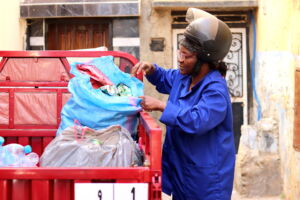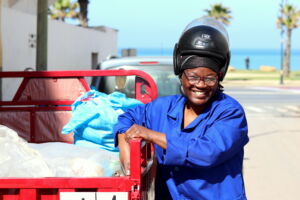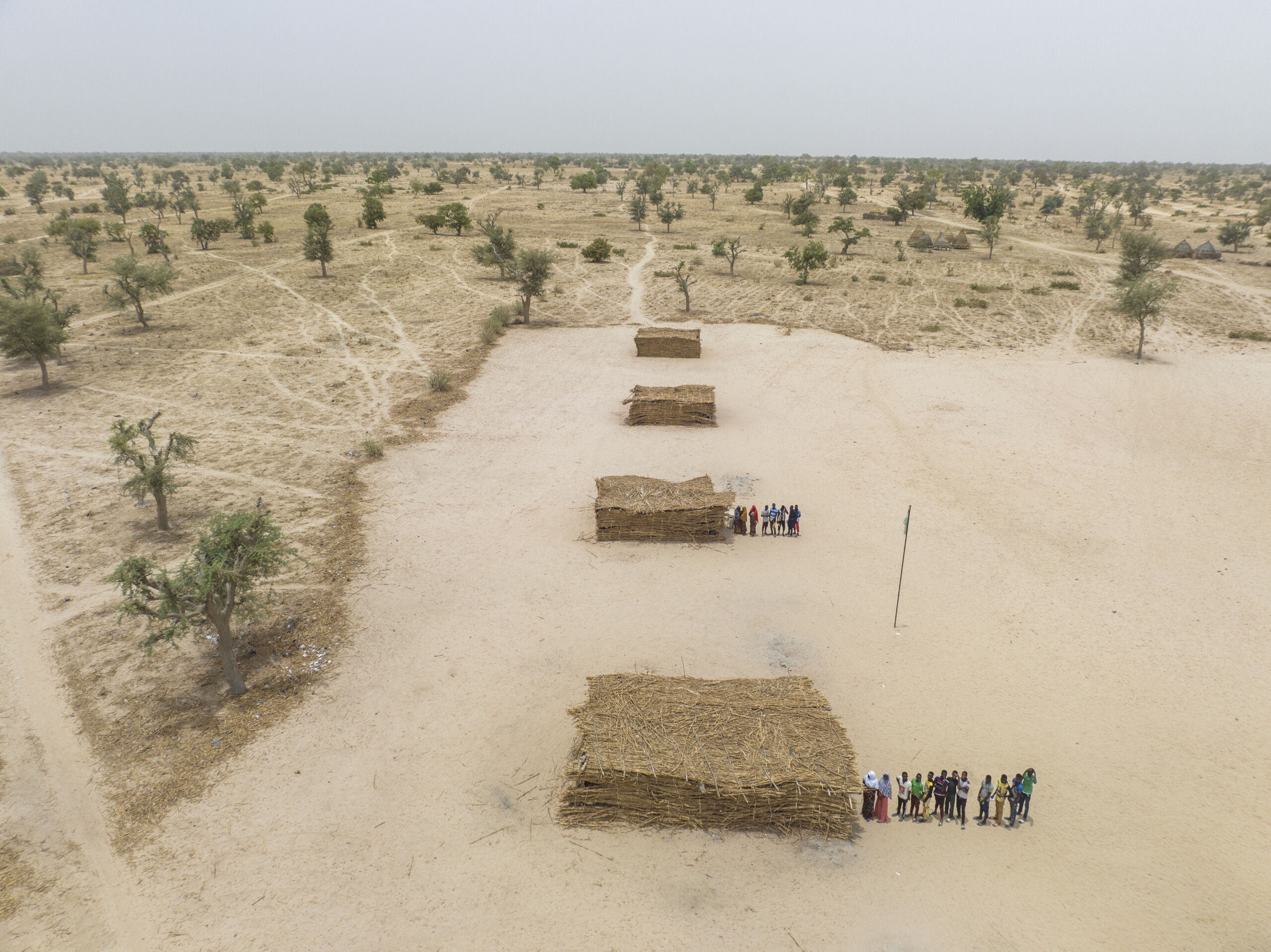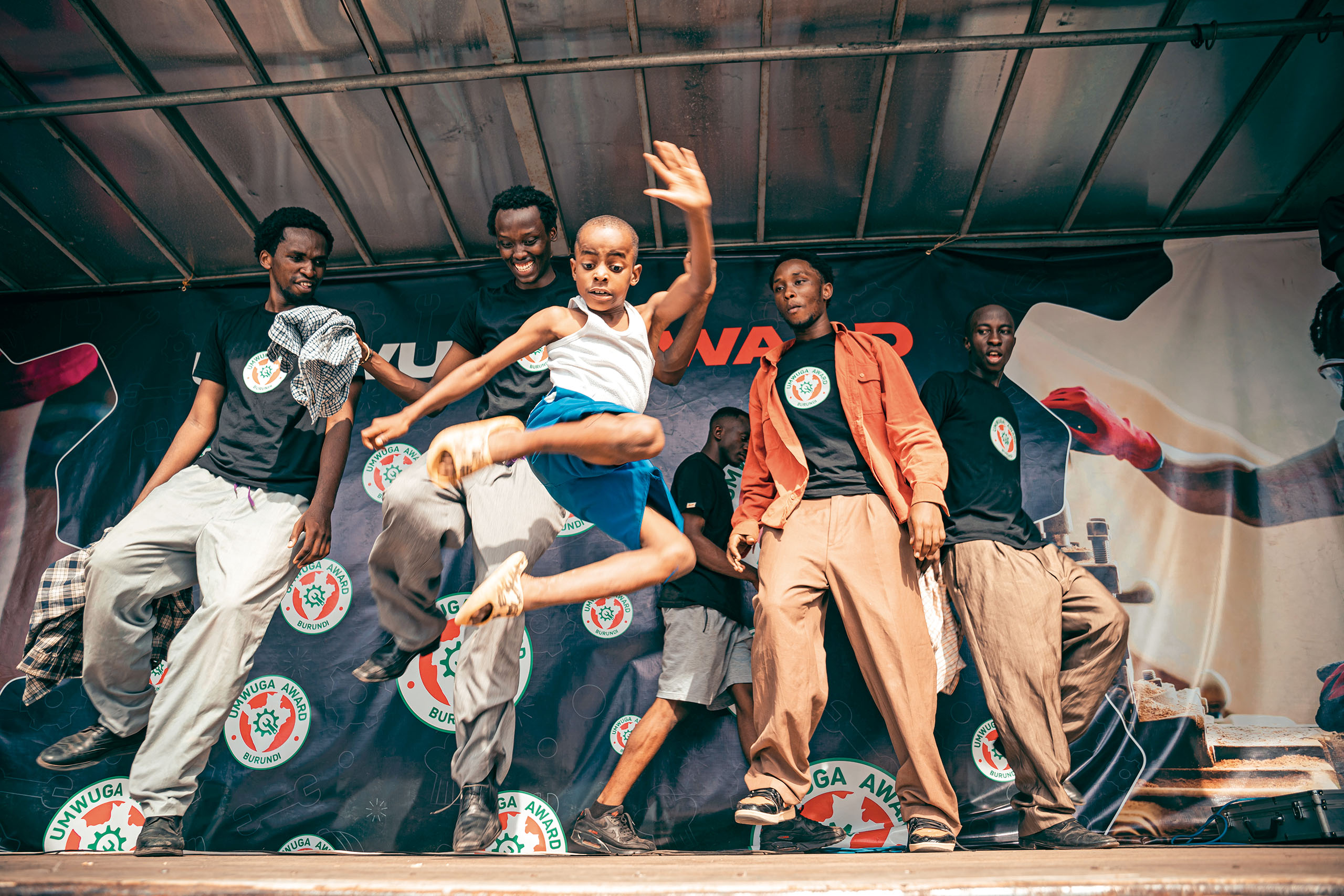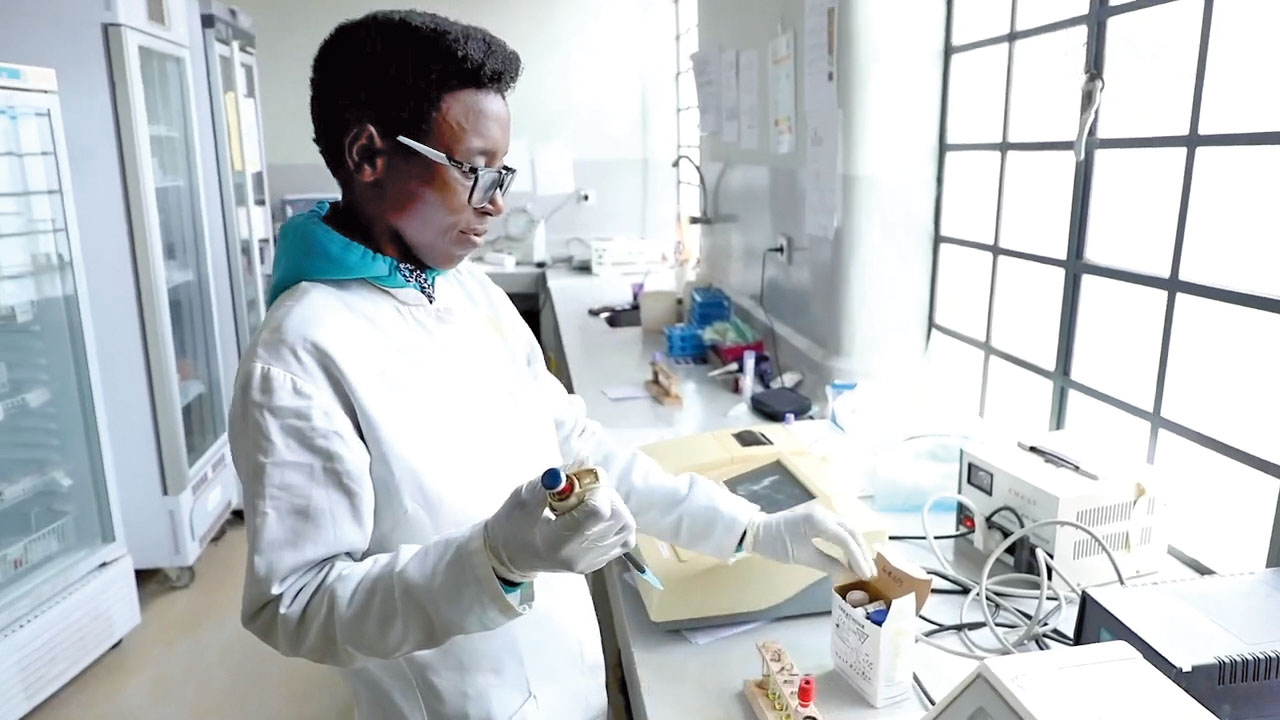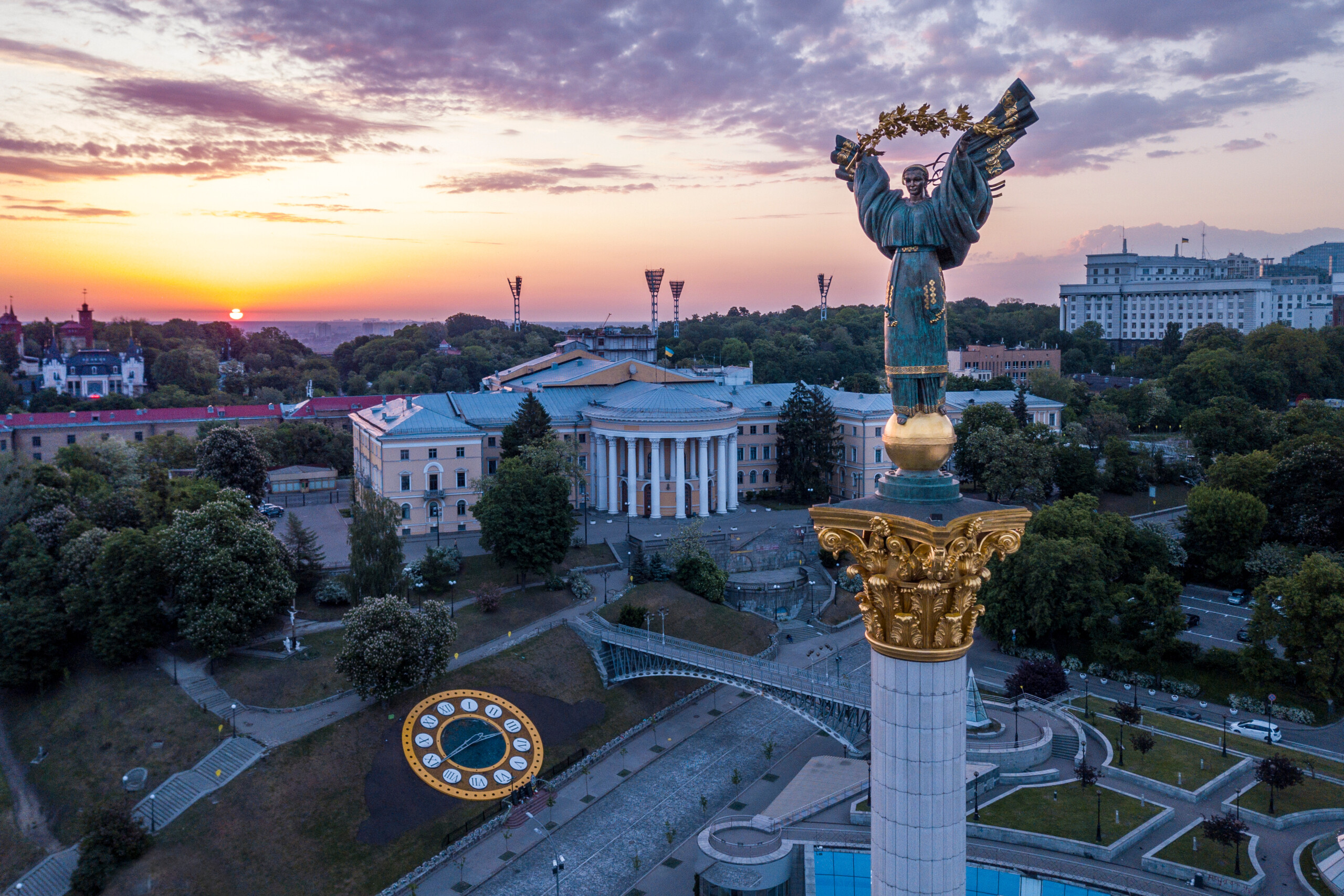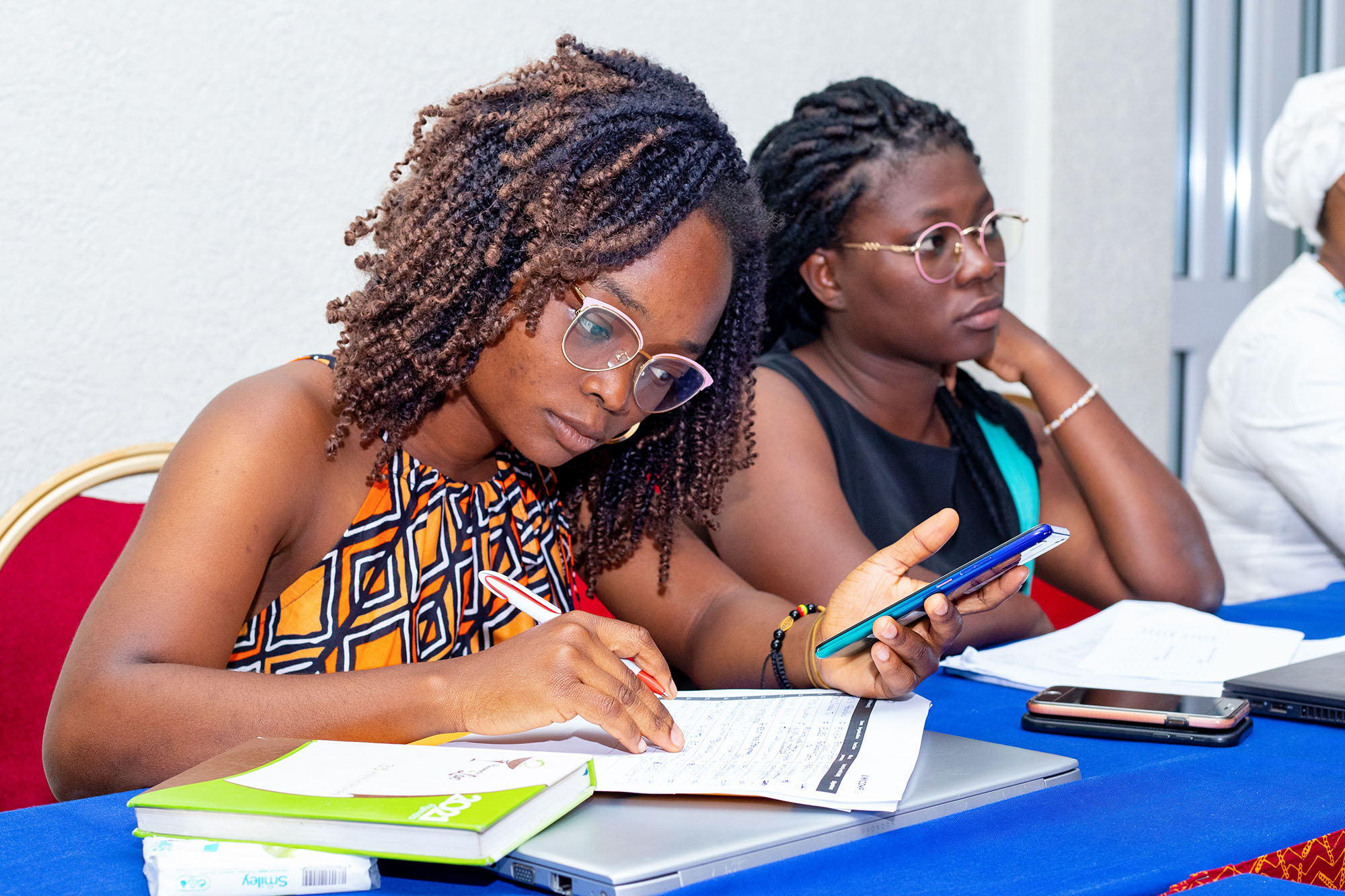Setting up a business in your host country: Solange’s success story
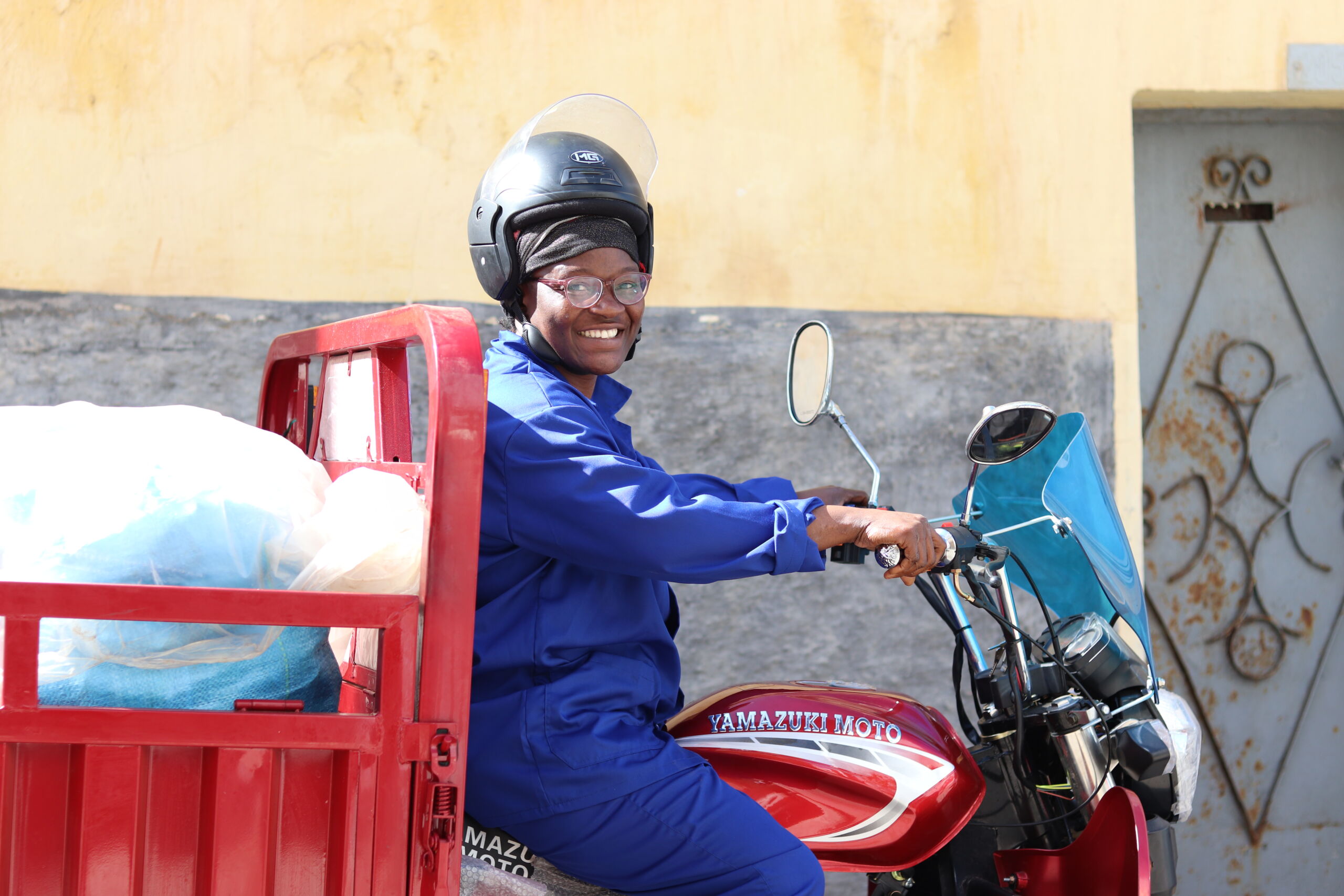
In 2017, Solange Njiojep Kappa left Cameroon and joined her husband, who had emigrated to Morocco ten years before. With the assistance of the Amuddu project she soon established her own business.
Solange’s story is like a fairy tale where the heroine overcomes adversity with the help of a good genie and builds the life of her dreams. And yet, nothing could be more down to earth than the journey of this courageous mother of three…
A nurse in Cameroon, she looked after her daughters alone. Her husband left Cameroon to look for work in Morocco ten years ago. In 2017, she decided to join him and work with him to provide a more comfortable life for their three daughters remaining in Cameroon.
Unfortunately, Solange is soon disillusioned: Her husband is in fact living in precarious conditions and her dreams of a better life seem to be slipping away.
Hard times for migrants
The integration of migrants into Morocco’s economy and society is not easy. Morocco has a high level of unemployment: It was at 12.1% in the first quarter of 2022, with a peak of 16.3% in urban areas. Moreover, the economy’s informal sector is quite large, which makes it even harder to integrate migrants.
Although employment and self-employment support services have existed for many years, newcomers are often unaware of them and therefore do not benefit from them.
Solange, who decides to remain in Morocco to be with her husband, is not one who gives up easily. She is actively looking for a solution.
“I often went for a walk on the beach to think over my situation. One day, I accidentally found an empty can and I picked it up. I wondered if there might be a lead for me there. I informed after the value of aluminum and learned that these cans could be collected, melted down and resold as aluminum blocks and that this could generate an income. But how to go about? ”
Amuddu: a local assistance project
Fortunately, Solange met one of the community agents of the Amuddu project at a neighbourhood meeting.
Amuddu is a word in Tamazight, meaning “journey”. The project is supported by Enabel. The initiative targets existing programmes and especially aims to strengthen coordination. Enabel supports various institutions responsible for assisting migrants and works with ANAPEC, the Moroccan public service for training and employment.
The initiative also calls upon civil society organisations. The idea is not only to coordinate everyone’s efforts but also to try out new ways of strengthening existing assistance. Thus, and that was a first for Morocco, ANAPEC welcomed a team of four workers with migrant and refugee backgrounds: two from Côte d’Ivoire, one from Cameroon and one from Guinea.
Their task: Meet with immigrant communities in the neighbourhoods where they live and inform them about the services available for vocational training and assistance for employment and self-employment.
This approach is particularly effective because it creates a link between Moroccan public institutions and migrant people. Too often, the latter tend to distrust official instances (see inset).
Civil society involved too
Civil society organisations also play a role. As soon as contacts are made, they assist migrants with administrative procedures, to get to know their rights, learning the language and accessing medical or psychological care.
For instance, the Ajial Foundations and the Moroccan Institution in Support of Micro Entrepreneurship created a consortium that works with ANAPEC to strengthen support to self-employment initiatives of migrants and refugees, with special attention paid to managing financial aid and to the start-up phase. With concrete results: to date, 140 business entrepreneurs have received funding for the creation of self-employment initiatives.
A business plan to get financing
Thanks to the Amuddu project Solange got in touch with the ANAPEC and got registered. That way, she could attend several training courses, including one on drawing up a business plan. She also received support to obtain the status of self-employed entrepreneur.
Solange was selected by the ANAPEC and benefited from a support measure of the project and could present her can recycling project to a jury. After deliberation behind closed doors, Solange was granted 22,300 dirhams (about 2,100 euros) to start her business.
The Amuddu project in numbers
But the assistance did not stop there. Indeed, the Ajial Foundation, the partner of the Amuddu project, assisted Solange: meetings to follow up the project, training on marketing, commercialisation and resource management, etc. Thanks to its funding, Solange could to invest in a scooter, boots, overalls, a helmet and gloves to work safely.
An eye on growth
Now, Solange makes a living from her activity. She has agreements with several restaurants to collect their cans and conducts regular clean-up operations along the Rabat coastline. His business activity now allows her to earn a living, contribute to the prosperity of her family and participate in the preservation of the environment and of her home community.
But our entrepreneur does not intend to stop there. In the near future, she wishes to expand her business by hiring vulnerable women from her entourage. Indeed, her project is growing and several recycling companies have contacted her. She is now thinking of expanding her activities in order to collect more cans and thus make her project prosper.
